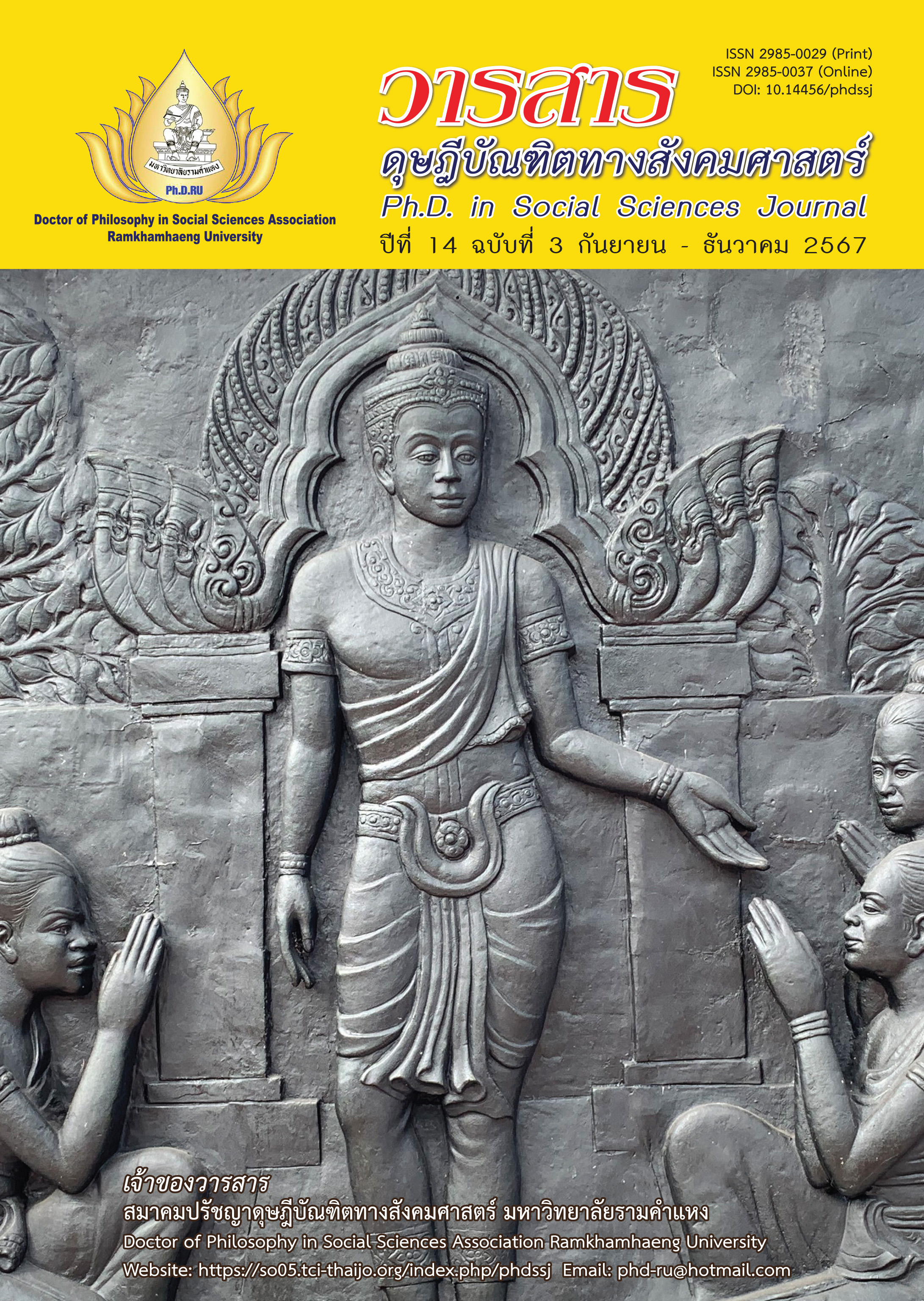Self and Career Self-Actualization Needs of Thai Generation Z
Main Article Content
Abstract
This research article aims to study (1) the condition of career self, (2) the condition of career self-actualization, and (3) their relations in Thai Generation Z population. Mixed methods technique was implemented: 419 samples surveyed by researcher’s questionnaire and 30 key Informants were dept interviewed. Descriptive statistic was implemented for personal data analysis and Chi-square Technique was implemented to test the relationship between the career self variables and the career self-actualization variables.
Findings are as follows: Most of Thai generation Z’s career self are not clear, not steady, and incongruent between their self-concept and their ideal self. Their career self-actualization needs level are quite high. They do not mind, whatever career they are going to do but their high income and wealth are only the real representative of their career self-actualization. Almost of the career self-variables were used in this research are significantly relating to the career self-actualization variables (α = 0.05).
Article Details

This work is licensed under a Creative Commons Attribution-NonCommercial-NoDerivatives 4.0 International License.
Academic articles, research articles, and book reviews in the Ph.D. in Social Sciences Journal are author’s opinions, and not the publisher’s, and is not the responsibility of the Ph.D. in Social Sciences Journal Philosophy Association, Ramkhamhaeng University. (In the case that research is done on human, the researcher has to be trained in Ethics for Doing Research on Human Training and has to produce the evidence of the training).
References
Amalia, R. S. (2023). Career choice on Gen Y & Z after the pandemic Covid 19: A social cognitive career theory. In A. Fattah, M. A. Basori, M. A. Fu’ady, & N. Sholichah. (Eds.), Proceedings of the conference of psychology and flourishing humanity (pp. 265-279). Atlantis Press.
Bartram, D. (2005). The great eight competencies: A criterion-centric approach to validation. Journal of Applied Psychology, 90(6), 1185-1203.
Becer, T. (2021). The influence of Generations Y and Z on career future. International Journal of Management and Social Researches, 8(15), 90-103.
Benítez-Márquez, M. D., Sánchez-Teba, E. M., Bermúdez-González, G., & Núñez-Rydman, E. S. (2022). Generation Z within the workforce and in the workplace: A bibliometric analysis. Frontiers in Psychology, 12, 736820.
Cheung Kong Graduate School of Business. (2023). Understanding China’s Gen Z in the workplace: Strategies for effective cross-generational management. Author.
Jayatissa, K. A. D. U. (2023). Generation Z – A new lifeline: A systematic literature review. Sri Lanka Journal of Social Sciences and Humanities, 3(2), 179-186.
Kaplan, R. M., & Saccuzzo, D. P. (2001). Psychological testing: Principles, applications, and issues. Wadsworth Cengage Learning.
Mărginean, A. E. (2021). Gen Z perceptions and expectations upon entering the workforce. European Review of Applied Sociology, 14(22), 20-30.
Maslow, A. H. (1943). A theory of human motivation. Psychological Review, 50(4), 370-396.
Maslow, A. (1954). Motivation and personality. Harper & Row.
Maslow, A. H. (1987). Motivation and personality (R. Frager, J. Fadiman, C. McReynolds, & R. Cox, Editors, 3rd ed.). Longman.
Nastasi, B. K., & Schensul, S. L. (2005). Contributions of qualitative research to the validity of intervention research. Journal of School Psychology, 43(3), 177-195.
National Statistical Office. (2022). Important statistics and indicators: Number of population from registration by sex, area, density, house, region and province, 2012-2023. Retrieved from https://www.nso.go.th/nsoweb/nso/statistics_and_indicators?impt_branch=300 [In Thai]
Office of the National Digital Economy and Society Commission. (2023). Thailand digital outlook annual report 2023. Author. [In Thai]
Ozkan, M., & Solmaz, B. (2015). Mobile addiction of Generation Z and its effects on their social lifes: (An application among university students in the 18-23 age group). Procedia–Social and Behavioral Sciences, 205, 92-98.
Ozturk, U., & Yildirim, E. (2023). The evaluation of generation Z in innovation of career success: Comparative analysis with Generation Y. Marketing and Management of Innovations, 14(2), 115-126.
Pratitas, P., Chullasap, N., Sivabaedya, S., Treeaekanukul, L., Boonratmaitree, A., Pratitas, N., & Boonta, T. (2013). The development of democracy and participant political culture for Thai Gen Z population. King Prajadhipok’s Institute. [In Thai]
Racolta-Paina, N. D., & Irini, R. D. (2021). Generation Z in the workplace through the lenses of human resource professionals–A qualitative study. Quality-Access to Success, 22(183), 78–85.
Raslie, H. (2021). Gen Y and Gen Z communication style. Studies of Applied Economics, 39(1), 1-18.
Rogers, C. R. (1961). On becoming a person: A therapist’s view of psychotherapy. Houghton Mifflin.
Rogers, C. R. (1975). The emerging person: A new revolution. In R. I. Evans, & C. Rogers (Eds.), The man and his ideas (pp. 147-175). Dutton.
Schroth, H. (2019). Are you ready for Gen Z in the workplace?. California Management Review, 61(3), 5-18.
Shtepura, A. (2022). Main characteristics and stereotypes of Generation Z: Analysis of foreign experience. Comparative Professional Pedagogy, 12(1), 86-93.
Super, D. E. (1957). The psychology of careers. Harper & Row.
Super, D. E. (1980). A life-span, life-space approach to career development. Journal of Vocational Behavior, 16(3), 282-298.
Yamane, T. (1967). Statistics: An introductory analysis (2nd ed.). Harper & Row.


